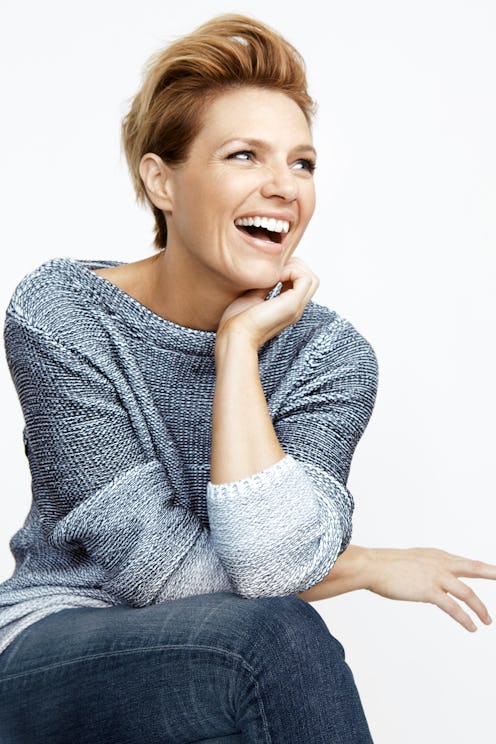Entertainment
Kathleen Rose Perkins on 'Gone Girl' & Cool Girls

Gone Girl was arguably the biggest movie of 2014. It had that rare combination of both commercial success and critical acclaim, and even added to discussions about gender roles in society. That's a very important contribution, because feminism is not a buzzword, it's an important movement and viewpoint, and one that is shared by one of the film's stars. Though you may best know her from Episodes, Kathleen Rose Perkins appeared in Gone Girl as Shawna Kelly. In an interview with Bustle, Perkins shares her thoughts on feminism, and how the concept relates to not just Gone Girl and Episodes, but her own life as well. Perkins offers a refreshing perspective and articulate way of communicating about this often misunderstood topic. Her glass-half-full attitude is a welcome addition to a discussion that often becomes highly heated.
On the fourth season of Episodes, which premieres on Jan. 11 on Showtime, Perkins worked with Andrea Savage and says that the two actresses became friends, something she's experienced throughout her acting career. "It's nice to be paired up with another woman actress and get along," she says. "Knock on wood. I am very lucky with the actresses I've worked with. I have really heard some nightmare stories. I am a feminist when it comes to working in this business. The more the merrier."
Perkins is not trying to be the only female star in her projects or elsewhere. She wants women, and people in general, to be able to achieve the success that they deserve. "Women are awesome," she declares. "I love how it is nowadays. I love that there is this call for women to write, produce, and direct film projects. I love that more women are doing work behind the scenes instead of solely being in front of the camera."
As Perkins points out, Gone Girl is an excellent example of this. "Women need to tell their own stories," she says. "Gillian Flynn wrote the book Gone Girl and she adapted it into the screenplay. It's amazing that she did that whole project from start to finish. I admire her for doing such an amazing job adapting her work from the book to the movie." These are sentiments that every person should take to heart, man or woman. If you have a vision and a story to tell, see it through yourself. Go all in and put yourself out there if you are really attached to a project.
"Why can't women be prolific telling our stories about real women?" Perkins says, bringing up another key part of feminism, and the issues often found in TV and film. "Not just perfect women. What about women who are crazy and a little off? We are all crazy in some way. Men and women. No woman is perfect just like no man is perfect. Why not just tell our stories? If men are going to share their stories, so should women," she says. I agree with her. There is nothing wrong with showing raw emotion and imperfection. That's what make characters both interesting and relatable, and should extend to female characters too.
One great example of a female character who you could say is "a little off" and was written with imperfection is Gone Girl's Amy Elliott-Dunne. One of the most memorable parts of both the novel and film is Amy's "Cool Girl" speech, which defines the "cool girl," essentially, as the ideal woman in the eyes of a man, someone who has the same interests as him, doesn't nag, wants an active sex life, and is beautiful to boot. Does Perkins ever feel pressure to be that "cool girl" in real life? "I am not any exception to that. I lied and made myself look cool throughout my twenties," she says.
However for Perkins, that's changed as she's gotten older. "I try not to give my first impression as cool to people. I am in my thirties now and I accept myself for who I am. I found a balance now. And you know what I think I am kind of cool. I am not that definition of cool in the "Cool Girl" speech, but that is OK with me. I like myself for the kind of cool that I am."
After talking to Perkins, it's easy to see that her kind of cool is nothing short of amazing. She is optimistic, but not naive. She is intelligent, but not pretentious. She is Kathleen Rose Perkins, and she is not afraid to change the definition of who exactly that is over time.
Images: Ricky Middlesworth Photography (2)